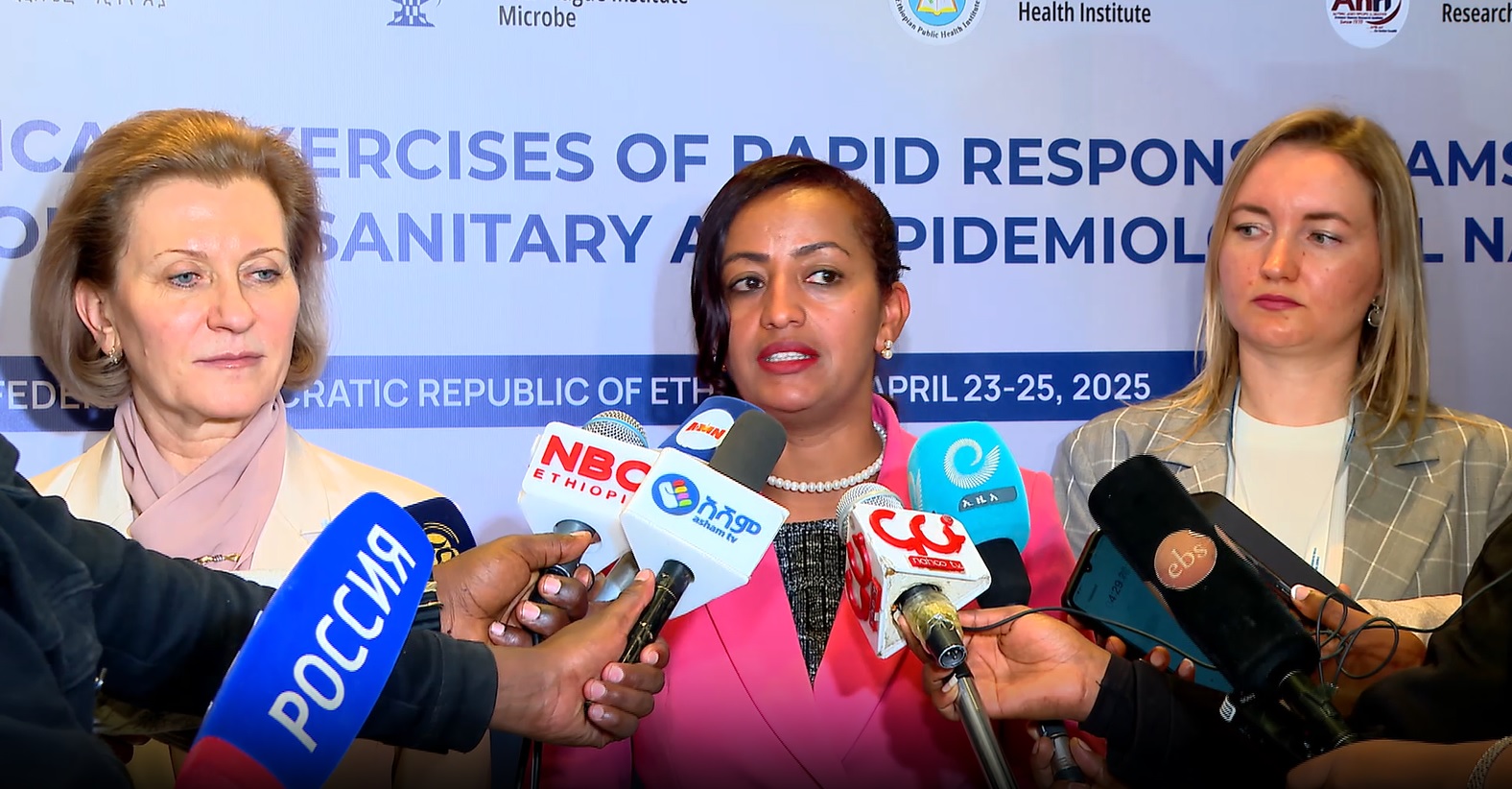Ethiopia’s Health Ministry Urges African Nations to Build Capability in Disease Prevention - ENA English
Ethiopia’s Health Ministry Urges African Nations to Build Capability in Disease Prevention

Addis Ababa, April 23, 2025 (ENA)— African nations need to forge their disease prevention and control capabilities by investing in modern laboratory infrastructure and skilled health workforce, Minister of Health Dr. Mekdes Daba stressed.
At the opening of the first Russian-African Sanitation and Emergency Rapid Response Team training seminar in Addis Ababa, Health Minister Mekdes stressed the need for strengthening Africa's public health response capacity.
The three-day seminar brought together experts from 15 African nations, including Ethiopia, to enhance rapid response and research-based service capabilities.
As part of a collaborative effort to modernize Ethiopia's health infrastructure, the modern mobile laboratory with the capacity to diagnose over 300 diseases was handed over to the ministry today.
The Minister of Health Receiving the laboratory from Anna Y. Popova, Head of the Russian Federal Service for Surveillance on Consumer Rights Protection and Human Wellbeing, Dr. Mekdes emphasized the commitment of both nations to deepening their partnership in various health-related areas.
The minister stated that the mobile laboratory will be instrumental in providing vital health services both within Ethiopia and in neighboring countries. "This facility will not only serve Ethiopia but also neighboring countries, enhancing regional health cooperation and epidemic readiness," she emphasized.
Furthermore, she emphasized the crucial role of Ethiopia's existing health research institutions, such as the Ethiopian Public Health Institute and the Armauer Hansen Research Institute, stressing the importance of strengthening and expanding these facilities to bolster disease prevention efforts
Africa is home to vital health research institutions, including the Africa CDC, she stated, emphasizing, "We must build on these foundations, enhancing laboratory manpower, and leverage strong partnerships, like the one we have with Russia, to protect our people."
Dr. Mekdes further noted that Ethiopia currently operates 33 laboratories and aims to increase this number to 40, thereby strengthening the country's capacity for national and regional disease surveillance and response.
"Russian support is distinct from traditional aid; it transcends mere assistance and focuses on fostering lasting independence and resilience," she underscored.
Anna Y. Popova, Head of Russia’s Federal Service for the Protection of Consumer Rights and Human Wellbeing, commended the shared resilience and unity of the Ethiopian and Russian people.
Just as Ethiopians stood strong for its unity and against past invasions, today’s fight is against disease. This partnership ensures Africans can protect themselves sustainably, she stated.
Popova also underscored that Russia’s approach centers on long-term collaboration and capacity-building, rather than fostering dependency. Our goal is to help African nations stand on their own in the face of future health threats," she emphasized.
Salma Malika, Deputy Chairperson of the African Union Commission, lauded the Russian initiative as a significant step towards bolstering the continent's health security.
Africa’s health problems must be met with African solutions, she asserted. However, we cannot achieve this in isolation. We require strategic partners like Russia and enhanced cooperation among AU member states.
She advocated for greater investment in health institutions such as the Africa Centre for Disease Control and Prevention, alongside the establishment of robust financial mechanisms within the continent to ensure sustainable health outcomes.
We deeply appreciate Russia’s strategic partnership in supporting the African Union’s Agenda 2063, a vision for a healthy, self-reliant, and prosperous Africa, she concluded.
Ambassador Evgeny Terekhin, the Russian Ambassador to Ethiopia, emphasized on the critical role of collaboration in addressing health crises.
Drawing lessons are necessary in view of the global response during the COVID-19, the ambassador stressed.
The COVID-19 pandemic starkly illustrated the consequences of unilateral action. Africa must collaborate internally and with partners to foster resilience and safeguard its people, he added.
The Ambassador reiterated Russia’s dedication to enhancing Africa’s public health infrastructure and empowering future generations to better confront health challenges.